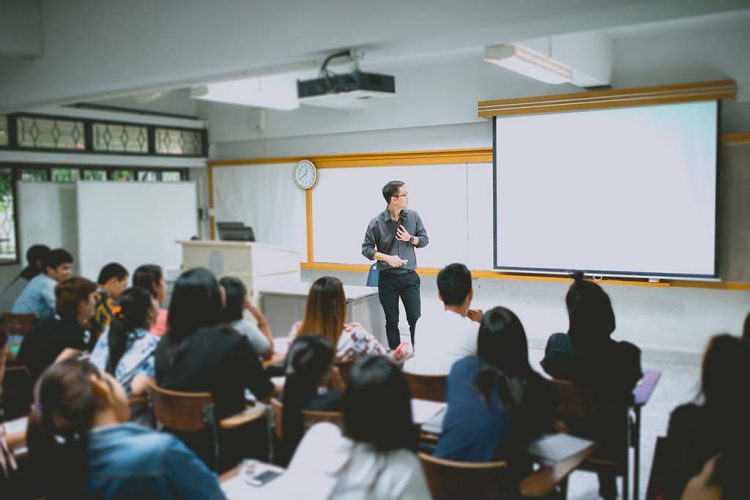Expert Primary Science Tuition Singapore for Understanding Complex Concepts
Expert Primary Science Tuition Singapore for Understanding Complex Concepts
Blog Article
A Comprehensive Guide to the Numerous Understanding Techniques in Main Scientific Research Instruction
The expedition of varied learning techniques in key science direction provides a possibility for teachers to improve trainee interaction and understanding significantly. By analyzing hands-on discovering methods, inquiry-based techniques, and collaborative approaches, we can identify efficient techniques that provide to numerous finding out styles.

Hands-On Learning Strategies
Hands-on understanding techniques play a crucial role in primary scientific research instruction, engaging students in energetic expedition and experimentation. These methods allow learners to interact directly with phenomena and products, cultivating a deeper understanding of scientific concepts. By utilizing manipulatives, versions, and real-life experiments, instructors create an environment where students can observe, hypothesize, and evaluate their ideas.
Such techniques not only enhance comprehension however additionally grow critical thinking and analytical abilities. When pupils take part in tasks like developing basic makers, growing seeds, or conducting chain reactions, they are motivated to ask inquiries and look for solutions via their very own monitorings. This experiential technique assists to demystify complex clinical principles, making them a lot more relatable and available.
Additionally, hands-on learning advertises partnership among peers, as pupils commonly work in teams to perform experiments or share findings. This synergy not just enriches their learning experience yet additionally establishes vital social skills. Inevitably, incorporating hands-on strategies in main science instruction fosters a lifelong love of learning and curiosity regarding the environment, laying a solid structure for future scholastic searches in scientific research and beyond.
Inquiry-Based Knowing
Inquiry-based discovering is an instructional method that motivates students to ask inquiries, investigate phenomena, and construct their own understanding of scientific principles. This technique shifts the emphasis from conventional teacher-led instruction to an extra student-centered experience, where learners take the effort in their academic trip. By fostering inquisitiveness, inquiry-based understanding advertises much deeper interaction with the product, allowing pupils to discover subjects in a meaningful context.
In method, this technique usually includes hands-on experiments, observations, and crucial thinking tasks that straighten closely with the scientific approach. Trainees are encouraged to create hypotheses, design investigations, and examine information, which cultivates vital skills such as logical and analytical thinking. The duty of the teacher in this framework is to assist in exploration, directing students via the inquiry procedure while motivating independent thought and partnership.
In addition, inquiry-based knowing supports a feeling of possession over the knowing procedure, inspiring students to pursue knowledge proactively. This approach not just boosts understanding of clinical ideas however likewise promotes a long-lasting love for discovering, furnishing trainees with the abilities needed to browse a progressively complicated globe.
Collaborative Understanding Approaches
Joint discovering techniques empower pupils to engage in meaningful communications with peers, cultivating a shared responsibility for their instructional results. In main science guideline, these methods motivate students to collaborate to check out scientific principles, fix problems, and perform experiments (primary science tuition Singapore). By joining team activities, trainees can utilize varied viewpoints, permitting richer understanding and retention of scientific understanding
One trick aspect of collective learning is the emphasis on interaction skills. Trainees have to articulate their ideas, pay attention actively to others, and discuss concepts, all of which are important competencies in both academic and real-world contexts. This social communication not only improves their understanding of clinical concepts however additionally promotes team effort and dispute resolution abilities.
Moreover, collective understanding typically brings about increased motivation and involvement. They are extra likely to take possession of their understanding trip when students see the value of their contributions within a group. Educators can promote this process by creating organized group tasks that straighten with curriculum goals while giving assistance on reliable collaboration methods. Overall, including collaborative understanding methods in key science direction grows a vibrant discovering environment that prepares trainees for future scholastic and social difficulties.
Technology Integration in Science
The assimilation of innovation in main science instruction enhances learning experiences by providing cutting-edge devices and sources that sustain numerous mentor approaches, including collaborative learning - a fantastic read primary science tuition Singapore. Using electronic systems, simulations, and interactive applications enables students to involve deeply with scientific concepts, helping with an extra hands-on technique to knowing
Digital labs, for example, make it possible for learners to conduct experiments safely and efficiently, advertising inquiry-based learning. These devices can mimic real-world clinical scenarios, enabling students to picture complex procedures that would certainly be hard to replicate in a typical classroom setup. Modern technology promotes interaction and cooperation among trainees, as they can share searchings for and work with each other on jobs with online platforms.
In addition, multimedia presentations and instructional videos can enhance lessons by satisfying diverse knowing designs, making abstract concepts a lot more easily accessible. Data analysis tools likewise encourage pupils to collect and translate scientific information, enhancing critical thinking skills. In general, the calculated unification of modern technology in primary science instruction not only enhances interaction however likewise prepares pupils for a highly advanced society, equipping them with necessary abilities for future clinical undertakings.
Set Apart Guideline Approaches
Set apart guideline approaches are essential for addressing the diverse requirements of learners in primary scientific research education and learning. These approaches make it possible for educators to customize their training techniques to fit varying capabilities, interests, and learning styles within the class. By using set apart guideline, instructors can produce an inclusive setting that cultivates involvement and boosts understanding of clinical ideas.
One effective approach is to utilize versatile grouping, which permits trainees to work together with peers at similar skill degrees or with varying point of views. This approach urges peer knowing and promotes crucial reasoning. In addition, providing choices in jobs can encourage trainees, allowing them to choose projects that reverberate with their passions while still fulfilling curricular goals.
Furthermore, including tiered tasks is one more important strategy. By designing jobs with differing levels of intricacy, teachers can guarantee that all students are properly tested, no matter their proficiency. Making use of developmental evaluations to evaluate recognizing further makes it possible for educators to adjust their training methods dynamically, making certain that each learner obtains the support they require.
Eventually, carrying out differentiated direction strategies in main scientific research education not just enhances trainee learning end results but likewise grows a passion for science, preparing trainees for future scholastic quests.

Final Thought
In summary, effective key science instruction demands a diverse approach that includes hands-on knowing, inquiry-based approaches, and collective techniques. The assimilation of innovation and differentiated guideline additionally satisfies varied knowing designs, promoting a setting for expedition and vital thinking. By carrying out these strategies, instructors can enhance pupil engagement and understanding, ultimately supporting a long-lasting passion for scientific research and inquiry. Such thorough approaches are crucial for establishing educated this link and curious future researchers.
The exploration of varied understanding approaches in primary science instruction provides a like this possibility for instructors to boost pupil engagement and comprehension considerably.Hands-on knowing methods play an essential function in main scientific research guideline, engaging students in active exploration and trial and error.Inquiry-based understanding is an educational approach that encourages students to ask concerns, check out sensations, and create their very own understanding of clinical ideas.Joint learning approaches empower students to engage in meaningful interactions with peers, promoting a common duty for their educational results. Generally, including joint understanding strategies in key scientific research instruction cultivates a dynamic learning environment that prepares students for future academic and social challenges.
Report this page